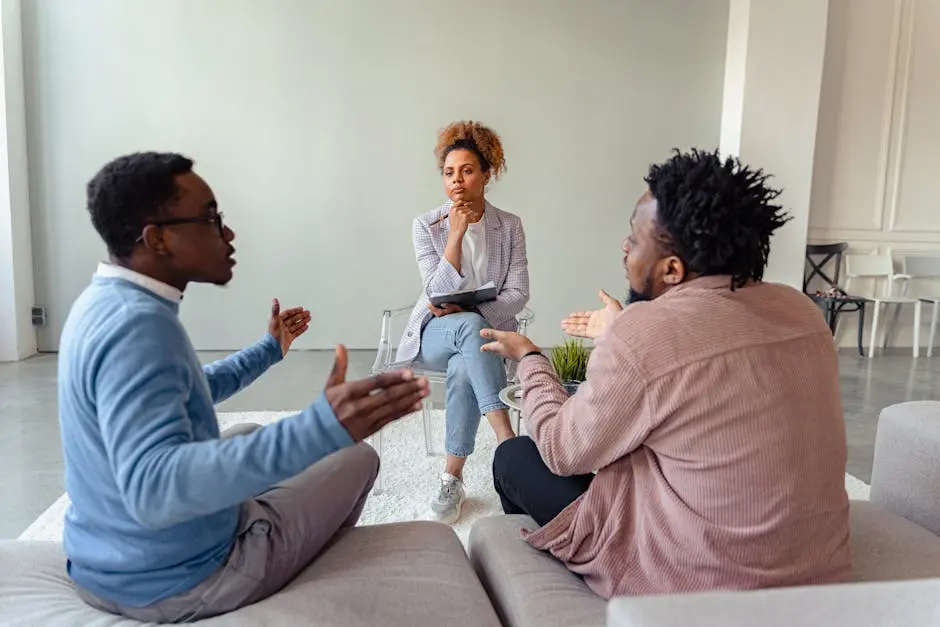What Should We Expect from Couples Counseling for BIPOC Communities?
Couples counseling can be a transformative experience, especially for BIPOC communities who might face unique cultural and societal challenges. Understanding what to expect from this journey can help demystify the process and encourage more people to seek the support they need.
Understanding the Purpose of Couples Counseling
Couples counseling focuses on improving relationship dynamics through effective communication and understanding. For BIPOC communities, this includes addressing culturally specific issues and enhancing mutual respect.
A significant part of couples counseling is to provide a space where partners can express their cultural identities without fear of judgment. This is essential for BIPOC communities, where traditional cultural values and societal pressures often intersect. The counselor facilitates discussions that bring these aspects to the forefront, identifying how cultural backgrounds influence their relationship, ensuring that both partners feel acknowledged and understood.
Through counseling, couples learn to recognize and address the cultural biases that may inadvertently affect their relationship. This understanding fosters a deeper connection and promotes an environment where both partners feel secure in sharing their true selves.
Finding a Culturally Competent Counselor
A key aspect is choosing a counselor who is sensitive to the cultural backgrounds of both partners. Look for therapists with experience in multicultural counseling and an understanding of specific cultural issues.
Finding a culturally competent counselor involves researching professionals who have a background or training that aligns with the specific needs of BIPOC couples. This could mean checking their credentials, reading testimonials, or directly asking about their experience with multicultural couples. A counselor aware of the intricacies within different cultures can help navigate the unique challenges faced by BIPOC communities, such as dealing with systemic racism or internalized stereotypes.
It's important to ensure that the counselor not only recognizes diverse cultural perspectives but also incorporates these insights into the therapeutic process. This level of understanding can significantly contribute to the effectiveness of the counseling sessions, ensuring that the advice and strategies are relevant and resonant for the couple involved.
Setting Goals for Counseling
In counseling, identifying goals is crucial. These could involve improving communication, resolving conflicts, or exploring cultural identities within the relationship.
Setting clear, realistic goals can enhance the effectiveness of couples counseling for BIPOC communities. Each couple might have different priorities; for some, it may be about building communication skills, while others might focus on resolving conflicts rooted in cultural misunderstandings. By establishing these goals early on, couples create a roadmap that guides their sessions and ensures both partners are working towards a common objective.
Counselors can help BIPOC couples set goals that reflect their unique experiences and cultural backgrounds. This tailored approach acknowledges the nuances of their cultural identity and the specific societal pressures they face, allowing for more meaningful progress and transformation within the relationship.
Preparing for Sessions
It's important to go into counseling with an open mind and readiness to explore personal and cultural topics that may arise during sessions.
Preparation for counseling begins with both partners being willing to engage in deep reflection on their personal experiences and cultural backgrounds. They should be prepared to explore how these elements impact their relationship dynamics. Being open and honest about feelings, past experiences, and expectations can greatly enhance the counseling process, creating a foundation of trust and transparency.
In addition to emotional preparedness, couples should consider practical aspects, such as scheduling sessions at convenient times and creating a comfortable environment for virtual meetings if necessary. A relaxed and focused mindset can make a significant difference in getting the most out of each session.
What to Expect During Sessions
Sessions will involve sharing experiences, learning new coping strategies, and understanding each partner’s cultural perspective to build a stronger foundation.
During counseling sessions, BIPOC couples can expect an introspective journey where both partners share their individual narratives. The counselor guides the conversation to uncover underlying issues and cultural influences that might be affecting the relationship. This process not only helps in resolving current conflicts but also prevents potential misunderstandings in the future.
Expect to learn practical tools and strategies to enhance communication and manage conflicts better. The counselor will introduce techniques that acknowledge and respect cultural differences, enabling couples to thrive in their unique identities while building a harmonious and supportive relationship.
Ultimately, couples will emerge from sessions with a greater understanding of themselves and each other, leading to a revitalized, more resilient partnership. The tailored approach of the sessions helps make them especially relevant and empowering for BIPOC communities, appreciating the diversity and richness of their cultural backgrounds.
Summarizing the Couples Counseling Experience for BIPOC Communities
Couples counseling for BIPOC communities provides a safe and empowering space to discuss sensitive topics, understand cultural dynamics, and strengthen relationships. By choosing a culturally competent counselor and setting clear goals, couples can expect a rewarding experience that respects and enhances their unique cultural identities.

